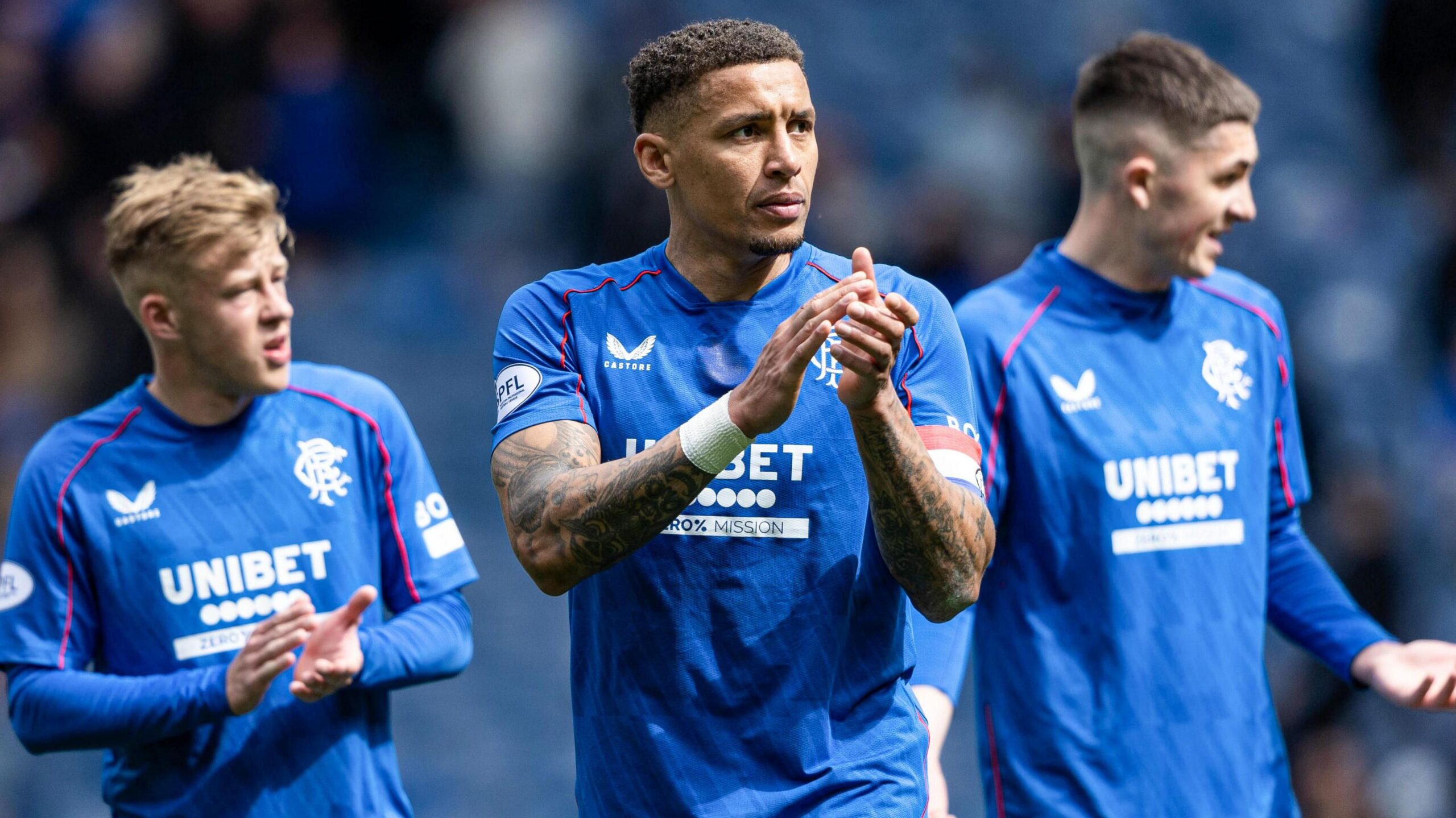The angst of a football manager’s life was writ large over Barry Ferguson’s contorted frame in the dying seconds of the last Old Firm derby of the season.
A Rangers throw-in down the Celtic end and an opportunity for James Tavernier to hurl one towards the box in the hope of something happening to turn a 1-1 draw into a win.
Instead, Hamza Igamane gets it and flings it back towards his own goal, whereupon Rangers are mugged and Celtic are away. Daizen Maeda, their principal goalscorer all season, is scampering into the Rangers penalty area – and Ferguson is practically jumping out of his own skin in frustration.
Gesticulating madly, he’s like a man who’s been given electric shock treatment. From the gantry up above, you could almost feel his pain.
Celtic blew that moment, of course, but in real time you’d have bet money on Maeda picking out Johnny Kenny for a fairly routine tap-in winner.
In the wake of Philippe Clement’s demise, Ferguson and his coaches – Billy Dodds, Neil McCann and Allan McGregor – were sent into Ibrox as some kind of survival experts, but it hasn’t worked. Too many ills, too much damage done before they arrived, too little time to work on a solution.
You sense Ferguson has dedicated all his waking hours to this cause, that he’s emptied himself into the role with abandon. He’s spoken brilliantly, he’s sent out all the right messages, he’s practically tattooed the word BELIEVE on his forehead in an attempt to drag his players out their torpor.
It’s not been enough to address the bizarre contradictions at the heart of this team, a gang of players with a twin personality; confident and dangerous against good teams, afflicted by uncertainty and impotence against supposedly inferior opposition.
Rangers have gone away to Fenerbahce and won a Europa League match but have been knocked out of the Scottish Cup by Queen’s Park, the eighth-best team in the Championship.
Under Ferguson, they’ve beaten Brendan Rodgers’ runaway champions in their own backyard at Celtic Park (scoring three times) and yet they’ve lost at home to Queen’s Park, St Mirren and Motherwell (scoring once), though only the latter fixture was on Ferguson’s watch.
They reached the last eight in Europe but haven’t won in seven games at Ibrox. They’ve lost one in four in the league against Celtic, but they’re 17 points behind them. They’ve outscored Celtic 7-6 in Old Firm games, but Celtic can’t even see them in their rear-view mirror.
Across the span of the league, Rangers’ record against Celtic is markedly better than their record against St Mirren, who are sixth. They’ve dropped as many points against Hibernian, Aberdeen and Motherwell as they have against Rodgers’ serial league winners. Ange Postecoglou’s Tottenham Hotspur only got a draw against them in Europe. Seven different domestic teams (including cup ties) have beaten them.
The fans have repeatedly turned on Cyriel Dessers, who has now scored 25 goals this season and has 47 goals in 107 games, while giving little of the same kind of vitriol to Danilo, who they signed for £6m for a return (when fit) of 12 in 46.

Rangers were combative on Sunday, as predicted. They were fired up and, at times, threatening. Nothing about that was surprising. They scored first. Again, it wasn’t a shock-horror moment. They’ve now taken the lead in four Old Firm games in a row.
The puzzle about how they can look pretty coherent in these games and look so bereft in others remains unsolved. Yes, they have more freedom to play when up against strong opposition who don’t resort to the low block to frustrate them, but that only goes a certain part of the way in explaining the vast disparity in performances.
How can you go toe-to-toe with the likely Europa League finalists Spurs and Manchester United – scoring in both, drawing one and losing the other to a late, late goal – and yet fall in a goalless heap against teams with a fraction of your playing resources and questionable defensive records?
At their worst this season, Rangers have lacked nous, steel, pace, leadership, creativity, goals from midfield, apart from Vaclav Cerny, and goals from a striker other than Dessers.
All four of Celtic’s starting defenders on Sunday have scored more times this season than Conor Barron, who’s on zero. Liam Scales, a centre-half, has as many as Nico Raskin, a defensive midfielder.
Of the XIs who began at Ibrox, Rangers had two players in double figures for the season, Celtic had five – and that was with Nicolas Kuhn injured and Kyogo Furuhashi sold. Luke McCowan, an unused substitute on the day, has scored more goals than seven of Rangers’ outfield starters.
Despite all of this, they can live with Celtic on any given day. They just can’t live with the pressure of should-win and must-win games.
We’re told none of this is lost on the prospective new owners. They know the team and its foibles, they know the Scottish landscape and who dominates it, they know the distance they must travel across some rocky terrain and they know every inch of progress is going to be hard-won.
Rangers are capable of flash-in-the-pan performances, like Sunday and the other ones that went before against Celtic, but there’s an empty feeling, an irrelevance when you suspect their next slip is just days away.
Related topics
- Scottish Premiership
- Rangers
- Scottish Football
- Football
Source: BBC

Leave a Reply